Shade-tolerant lawn: features and care
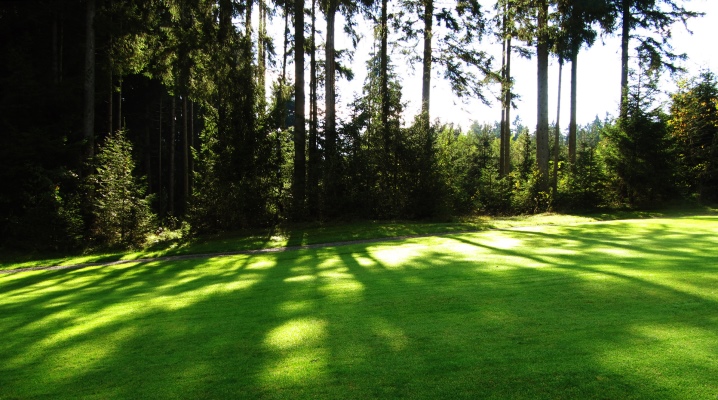
To create a lawn and properly care for it, certain knowledge and skills are required. A person who has never been involved in the arrangement of such sites often encounters various unexpected difficulties: grass has grown uncomfortably, weeds appear, the lawn has grown in the form of bumps. These problems can be very frustrating and even discouraging the desire to get hold of your own lawn.
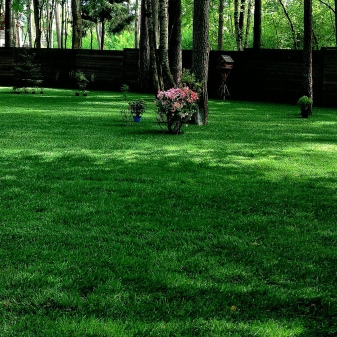
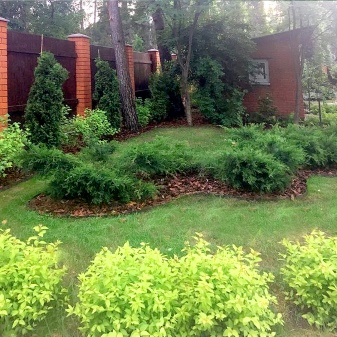
Characteristic
A lawn is a flat area planted with a special mixture of grasses that grow into a dense carpet. It has a decorative or functional purpose and, like everything growing, needs careful care. The site can become an elegant frame for flowering flower beds, groups of shrubs or trees, which visually look brighter against its background.
In addition to the decorative function, air humidity improves in the green area.
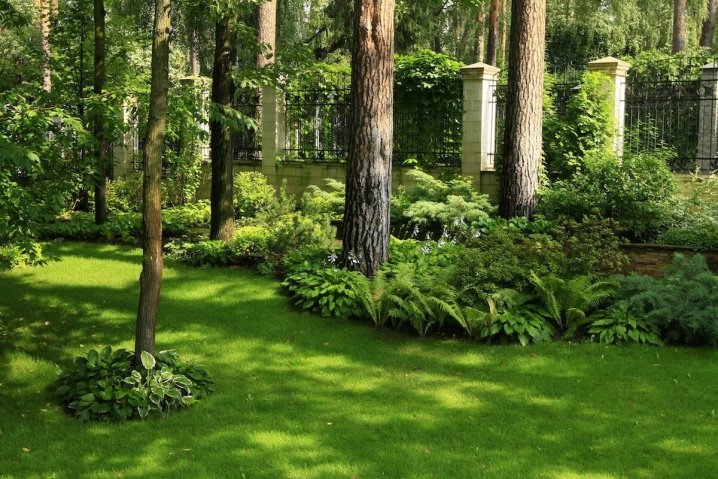
A shady lawn can become a thread that unites nature and humans. Landscape compositions with its help acquire a finished look. Lawn mixtures of herbs clean the air from harmful gases, dust, toxins. A green area helps to reduce soil vibration.
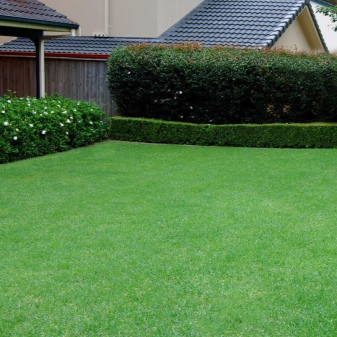
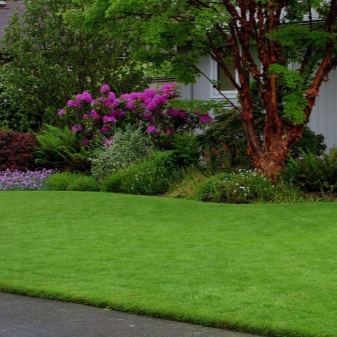
The advantages of a shade-tolerant lawn include the following:
- easily tolerates insufficient sunlight;
- does not depend on changeable weather;
- easy to clean.
There are special varieties of lawn grasses that are able to disguise all inconvenient areas under growing trees and shrubs, as well as areas on the north side, next to the wall of the house. With their help, it became possible to equip lawns next to tall and voluminous buildings and structures that provide a constant shade at a decent distance from themselves. These mixtures are often used to create lawns in indoor backyards.
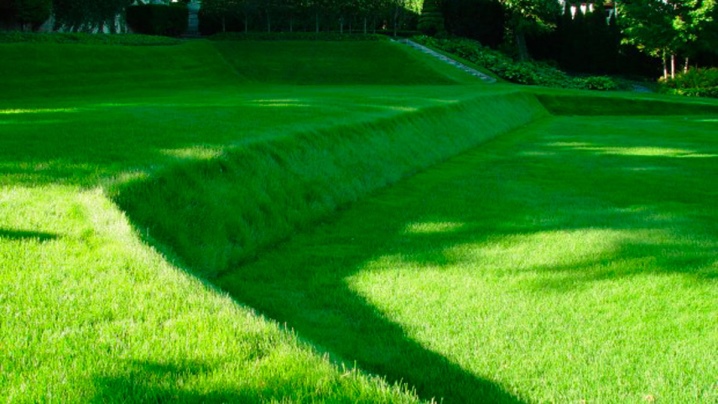
The seeds can be one specific herb or a mixture of several different varieties for maximum potency. The mixtures are designed to create a lawn in certain conditions that are far from ideal. For example, poorly lit shady areas under trees or bushes, located in places with excessive moisture and the possibility of fungal diseases, are best sown with a mixture of shade-loving herbs.
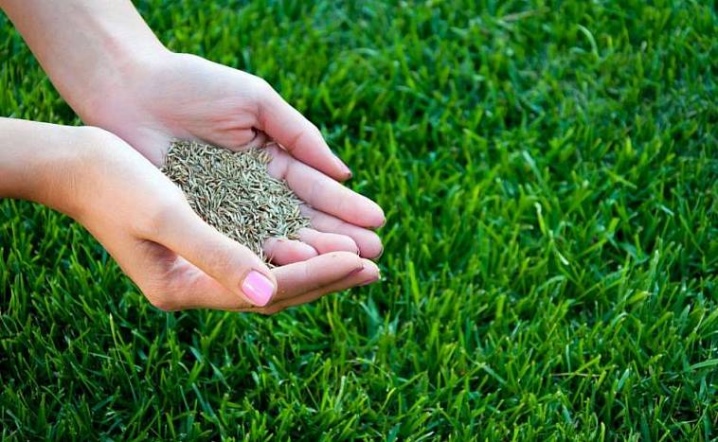
Mixtures of lawn grasses growing in the shade usually include fescue (Wallis fescue), red fescue, perennial ryegrass and bluegrass. This mixture gives the lawn a bright green color, makes it resistant to a number of adverse factors: fungal diseases, rare watering, and a drop in temperature. Such mixtures take root well and grow slowly, which excludes the dominance of weeds. Lawn grass has other equally valuable advantages. It has the ability to purify and heal atmospheric air, absorbs dust, toxic gases, particles of heavy metals.
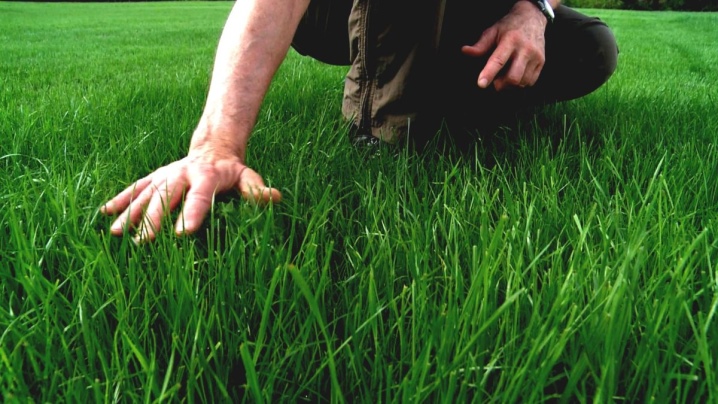
To create a green, landscaped area in the shade, it is recommended to choose slow-growing herbs that easily tolerate excess moisture. Ordinary grass, with a lack of sunlight, loses its bright color, withers and becomes susceptible to fungal infections. Red fescue and fescue do not suffer at all from insufficient sunlight, they grow well in acidic soil, but in this case the grass turns out to be very tough. The seeds germinate quickly, after 14-15 days, then grow, and as a result, a sod of high density is formed, which has a bluish-green color.
If you add ryegrass and meadow bluegrass to the mixture, the color of the lawn will be brighter and more saturated.
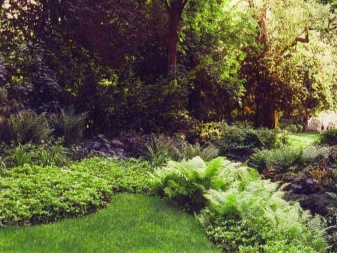
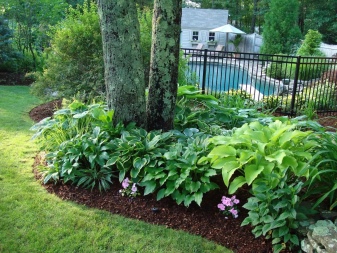
Views
There are several types of shade-tolerant lawns.
- Parterre. This is the most expensive and at the same time the most advantageous looking subspecies. It requires constant attention and care. One season is enough for the lawn to become decorative and start to please its owners.
- Mauritanian. The most common among ornamental lawns, since it is cheaper in cost and effort than parterre. But the appearance of the Moorish lawn, of course, is not as spectacular as that of the parterre lawn.
- Functional. The name fully corresponds to the purpose of these lawns, as they are intended for active use, as well as for various tasks in the landscape. For example, a trampling-resistant sports lawn is sown on a field for football and other sports games. A reinforcing lawn, as another type of functional lawn, is used along side roads on slopes and slopes for reinforcement.
- Universal. This type of green area is called universal because it meets all the requirements. Versatile lawns can be wild or ordinary. An ordinary lawn is very often created in areas around private houses or summer cottages. It is very pleasant to relax on it, or, on the contrary, play a game of badminton or kick the ball. The cost is directly proportional to the quality, since the lawn can be very cheap and catching up with the parterre in terms of costs. The composition of the lawn grass mixture has a great influence on the cost, therefore the readiness times differ.
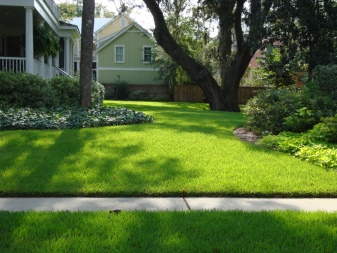
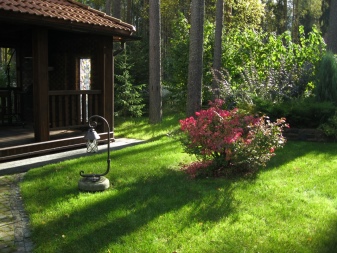
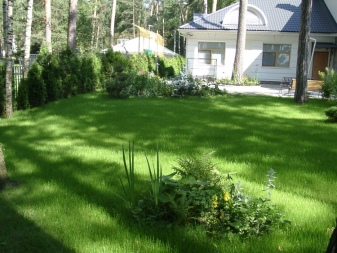
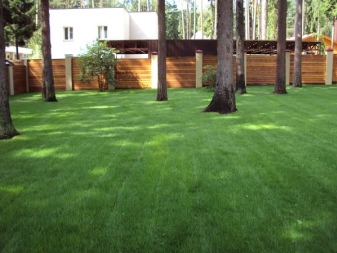
Choice
It depends on the correctness of the choice whether it will be possible to create the desired ideal. In any case, the following points should be highlighted.
- Cheap lawn even with constant careful care, it will be able to acquire a finished look no earlier than after a few seasons.
- Lawn from the middle price segment will acquire the desired appearance in 2-3 months, but also with the condition of careful maintenance.
- Premium zone can be created in a matter of weeks with minimal effort. That is why expensive lawn mixtures have an undeniable advantage.
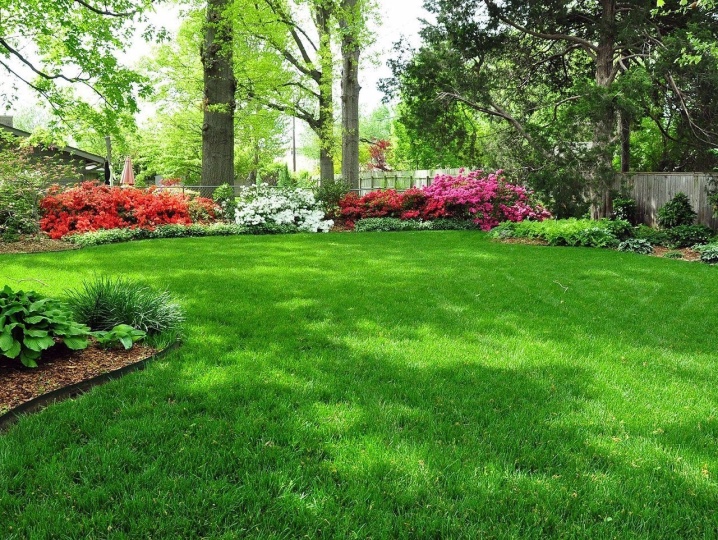
There is one more metric to consider when planning your lawn. This is its intended purpose. The following varieties can be distinguished here:
- decorative;
- functional;
- universal.
A landscape will not look harmonious if there are no lawns or lawns that can easily turn into a picnic area, playground or playground.
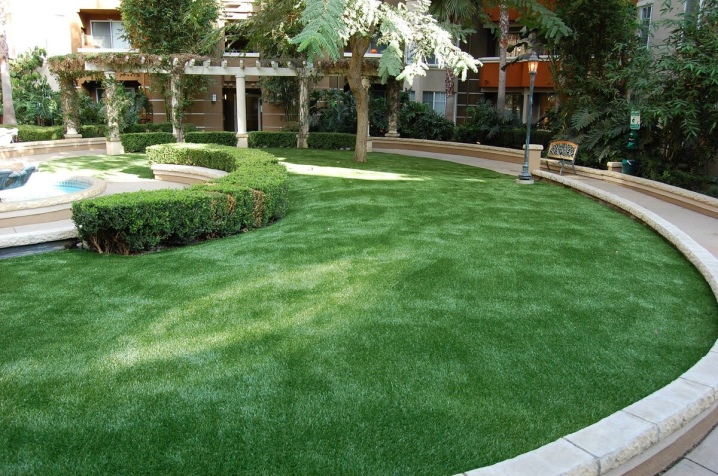
Care
For 1 hundred square meters of the treated area, 5 kg of seeds are needed. It is preferable to use ready-made lawn mixtures from reputable manufacturers. A lawn planted in the shade requires special treatment. Cutting often is not necessary as the grass grows slowly. Enough once a month. However, regular aeration is essential to prevent infections.
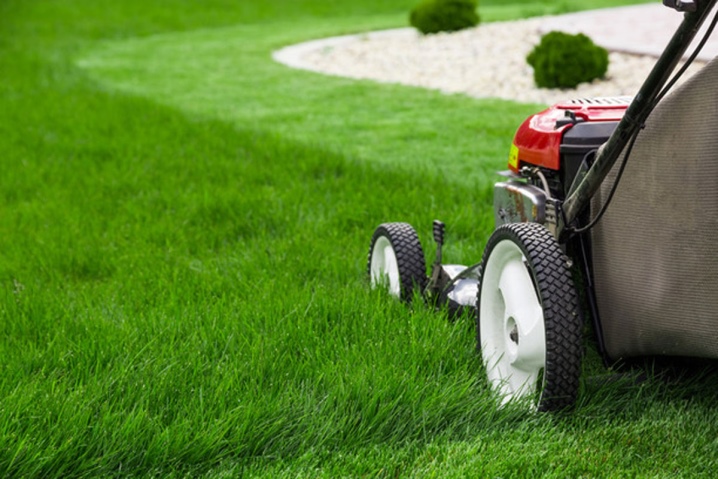
Regular correct feeding, which is carried out at the beginning of May, is a prerequisite for good lawn development. To reduce the acidity of the soil, lime must be added. For feeding 1 weave, you will need 3 kg of lime and 5 kg of fertilizers in granules. They are evenly scattered over the entire area of the lawn and are watered abundantly with water.
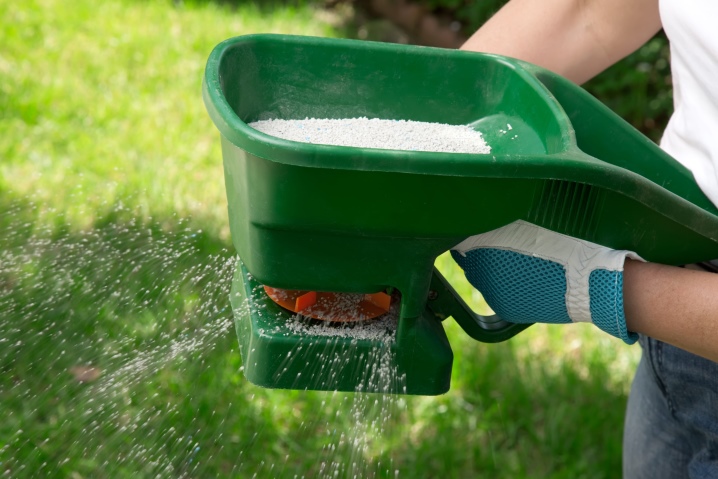
A shaded lawn has to be repaired more frequently than a lawn growing in a sunny position. Lack of lighting provokes the appearance of bald spots, on which it is often necessary to sow seeds. The top layer of soil must be loosened, filled with nutritious soil, smoothed with a rake and planted with seeds.
The correct choice of the composition of the lawn mixture will help to make even the most shady corners of the garden cozy and beautiful.
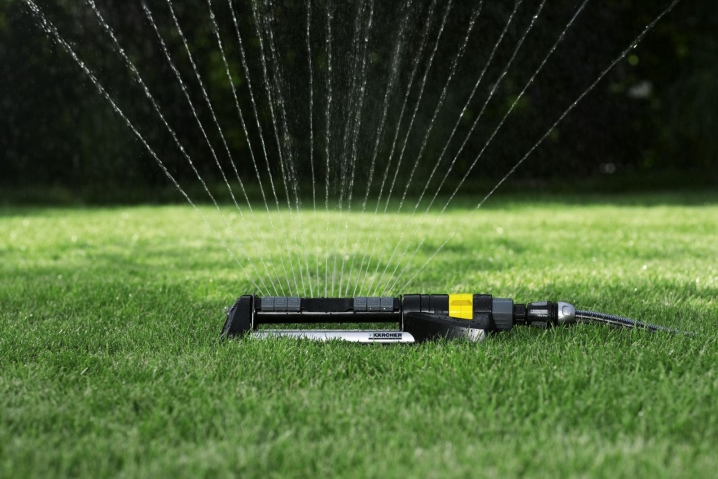
You can see useful information about lawn grass for shady areas in the following video.



































































The comment was sent successfully.